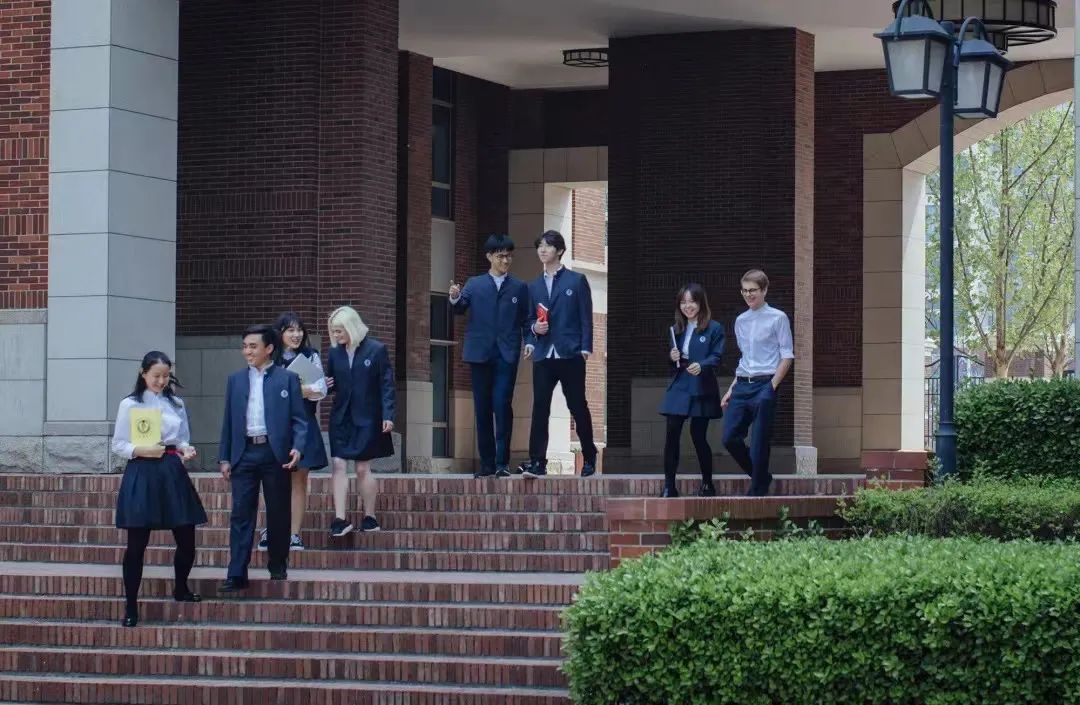
Shining Examples :Meet the Keystone scholars who strive to make a difference
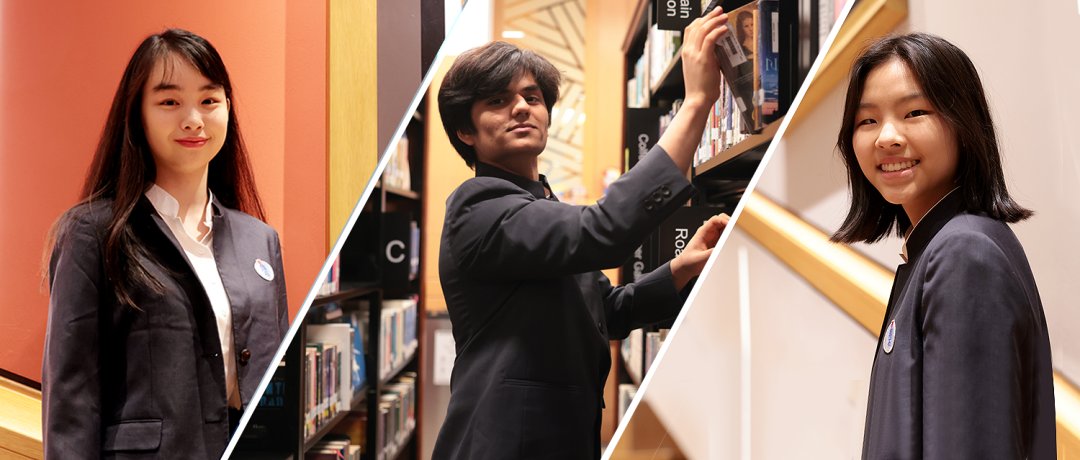
In its more profound sense, scholarship is the dedication to a deeper level of learning. A student who studies well may become a scholar, and this pursuit can lead them to more promising futures. However, the current state of the world not only requires bright minds; it calls for deep thinkers whose motivations and passions are grounded in the ideals of humanity.
In 2018, Keystone Academy established the Keystone Scholars Program for young people who live by the school’s five shared values in their pursuit of knowledge that can change many lives. As Keystone Dean of Admission Chris McColl puts it, “these students allow people to see Keystone in human form.”
There are three levels of Keystone scholarship: the Founders Scholarship for academically exceptional students; the selective Junzi Scholarship for students who uphold outstanding academic and community standards; and the Keystone Scholars Program for students who will be given the privilege to carry and represent the school’s name to embody its educational ideals.
“Despite all they have done, these students are remarkably humble and self-effacing in how they represent themselves,” Mr. McColl adds. “They always share their successes while maintaining a quiet sense of self.”
We share the stories of three of Keystone’s current scholars who are shining examples of their own: not only are they bright, but they turn this light to guide their hearts and actions to uplift people.
Renaissance Man: The world is an oyster for third-culture kid Arsh Noman
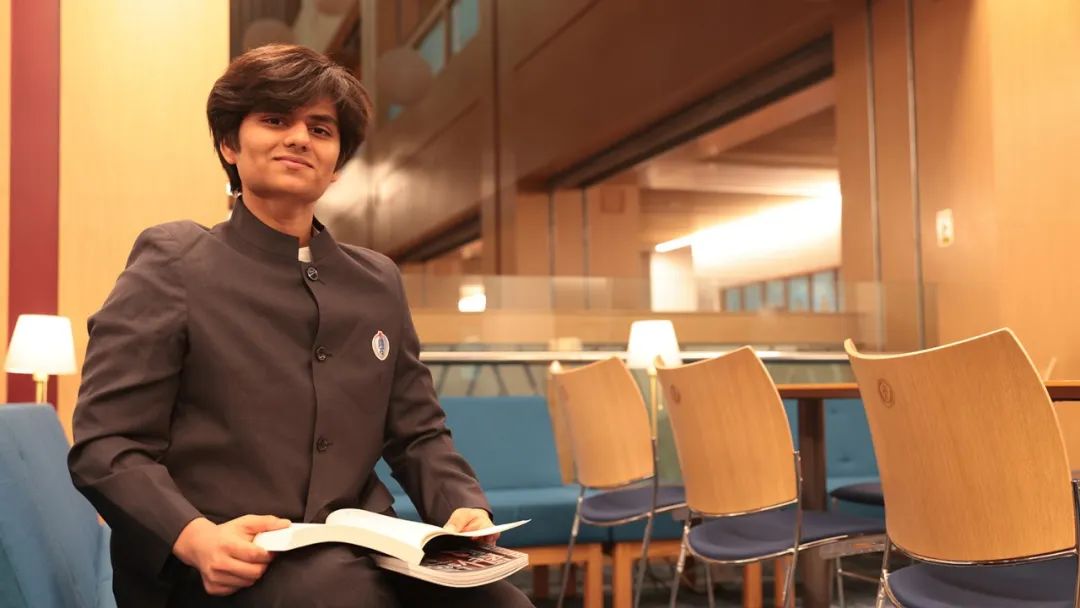 Arsh Noman has been living in China for nearly three years—and he jokes he has been here for much longer than India, the home country of his parents, and technically his own. Born in Bangkok to a Muslim father and a Sikh mother, Arsh is a true-blue third-culture kid. He lived in the Thai capital for six years, then moved to Malaysia and stayed there for seven years. Later, the family moved to Wenzhou in Zhejiang, China, where his father worked for two years.
Arsh Noman has been living in China for nearly three years—and he jokes he has been here for much longer than India, the home country of his parents, and technically his own. Born in Bangkok to a Muslim father and a Sikh mother, Arsh is a true-blue third-culture kid. He lived in the Thai capital for six years, then moved to Malaysia and stayed there for seven years. Later, the family moved to Wenzhou in Zhejiang, China, where his father worked for two years.
The 15-year-old student has spent his entire lifetime abroad, yet he still considers India his home. However, whatever knowledge he has of its culture and society comes from his eclectic upbringing, and he strives to learn more about this part of his identity every passing day.
Being a third-culture kid has opened Arsh’s mind to the beauty and complexities of multiculturalism. He has experienced living in countries with entirely different belief systems, languages, and traditions. Since arriving in China with a native-level grasp of English and Malay, Arsh has been trying to learn Mandarin Chinese. At first, he immersed himself in a community that spoke Wenzhounese, a dialect so complex that it had been used as a military code during the Sino-Japanese War; now, at Keystone, he studies standard level Chinese ab-initio.
Arsh has been used to living an itinerant lifestyle due to his parents’ careers as educators. Suffice it to say, universities and schools have become his home, and professors and teachers from around the world have expanded his academic knowledge. This wealth of experience taught Arsh from a young age how to integrate into the life of his host country and quickly grasp understanding that would otherwise be too difficult for children his age to get. In retrospect, Arsh feels amazed by the “big projects” he had done in the past few years, especially those informed by his growing erudition.
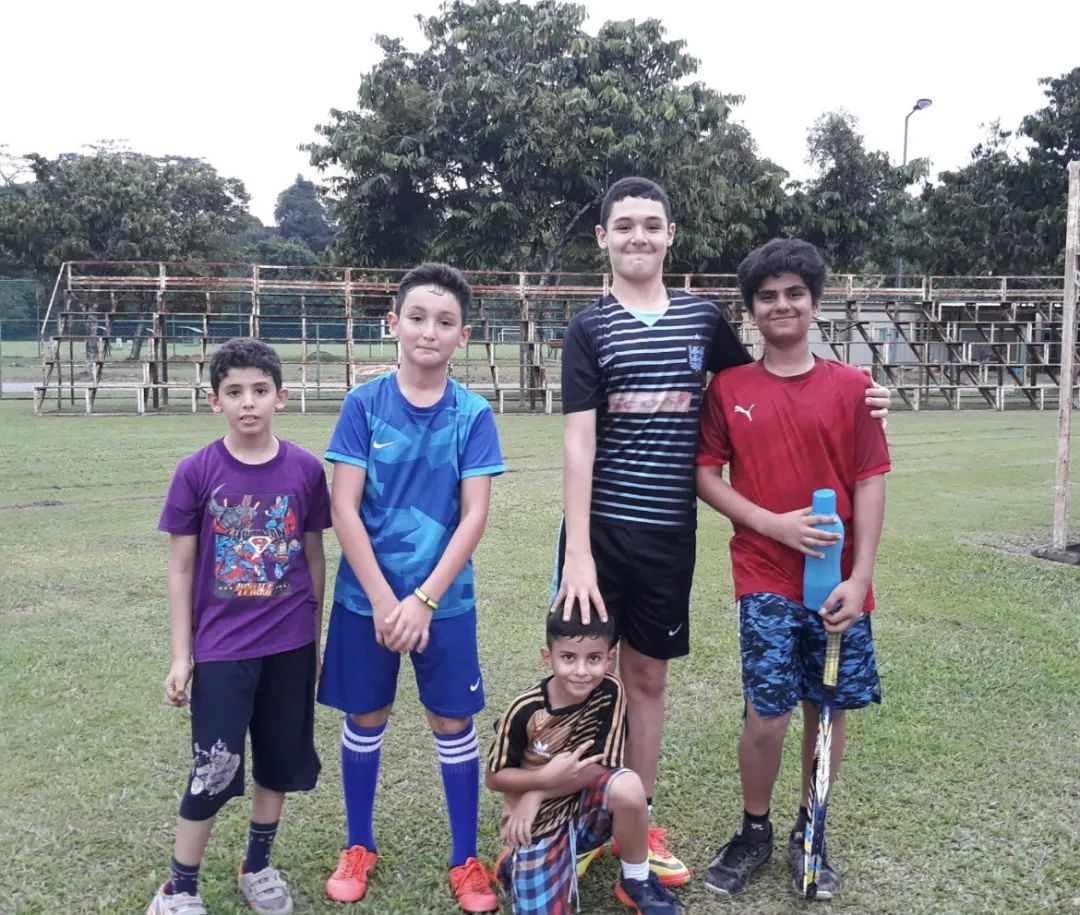
In Malaysia, the then-11-year-old Arsh worked with some classmates on a project about spreading awareness of leptospirosis, which affected a natural cave network frequented by tourists. The team collected and analyzed samples from nearby bodies of water and sent them to authorities for further review. Fortunately, these areas were spared from the disease. Arsh’s team also created flyers to inform local communities of the measures to prevent the spread of the disease. The following year, he launched another project in Malaysia where his team tried to culture grey oyster mushrooms as a healthy and cost-effective alternative to expensive meat. They visited a facility that grew these mushrooms and learned the science and processes of cultivating the edible fungi. In the end, the team was able to turn a small classroom into an oyster mushroom farm and donate the produce to people in need. This project earned Arsh’s team a spot in the semi-finals of the United Nations Global Social Leaders in 2019.
Arsh moved to Wenzhou in 2020, when the coronavirus pandemic made it virtually impossible to do anything. Left without knowing anyone, Arsh “decided to make [his] own opportunities” and tapped into his interest in programming to build an educational website that “started out as a joke” but later became a worthwhile project. On this platform, programmers from around the world can write their programs for free without downloading software or even compete with others in “code jams” or programming games. He collaborated with nearly a dozen organizations, including a student-led group that generously shared a curriculum that helped other youths to learn programming languages such as Python. He stepped down from managing the website when he moved to Keystone in mid-2022. However, he looks into using that venture as a template for his Creativity, Activity, Service (CAS) project at Keystone to share his knowledge with more students.
While these experiences highlight Arsh’s exceptional ability in the sciences, he keeps himself connected to the arts and humanities. Like his eclectic upbringing, his choices of literature and music are just as varied. He will jam to Led Zeppelin’s “Stairway to Heaven” while browsing the web for Ancient Egyptian mythology. At times, he will program while listening to Bob Dylan. His laptop cover can barely hold another label because the photo of NASA’s RS-25 rocket layout, a printout of the Eye of Ra, and a portrait of his favorite philosopher Friedrich Nietzche (plus a sticker of the Keystone logo) already occupy so much space.
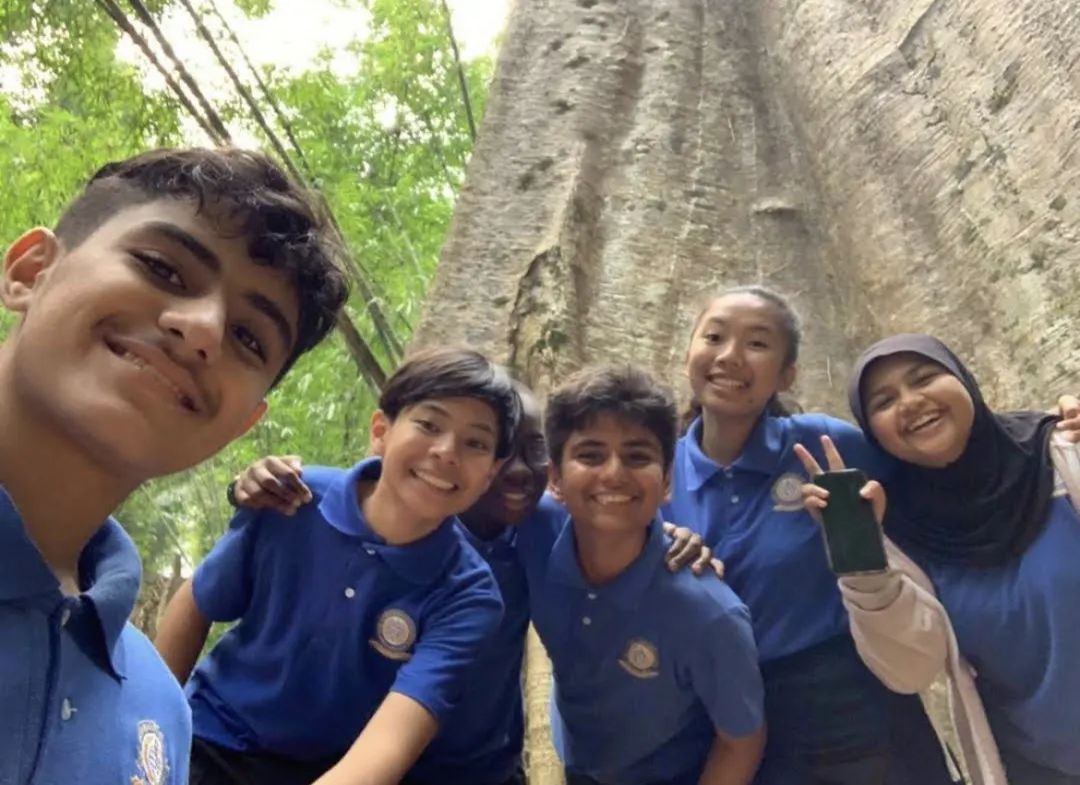
Although living in different countries has expanded Arsh’s understanding of the world, he still feels that Keystone is a brand-new world for him. For one, living away with his parents is a first; although he misses them a lot, he enjoys the wide-ranging weekend activities and bonding with his Keystone dorm parents and “floormates”, some of whom have become his closest friends. Keystone will be just but one flavor to the already exciting mix of worlds seen and lived by Arsh. And as time passes, one thing is clear for him: “I embrace the identity that I have been given”.
“I’m grateful for my experience,” Arsh adds. “But it’s not like I am entirely disconnected from India. I still respect my heritage—from the way I look, the food I eat, the language I speak, the music I listen to, and pretty much everything. What connects me to India is not the country; it is the culture of my parents and ancestors. It is also my culture.”
“I don’t mind where I go,” Arsh says of his plans in the future, “as long as it is a place where I can flourish and where I can meet like-minded people who can help me pursue my dreams—and even people with different ideas, because at the end of the day, I can still learn from them, right? They are people who can change me for the better.”
A Frame of Mind: Missy Liu shows why knowledge is truly power
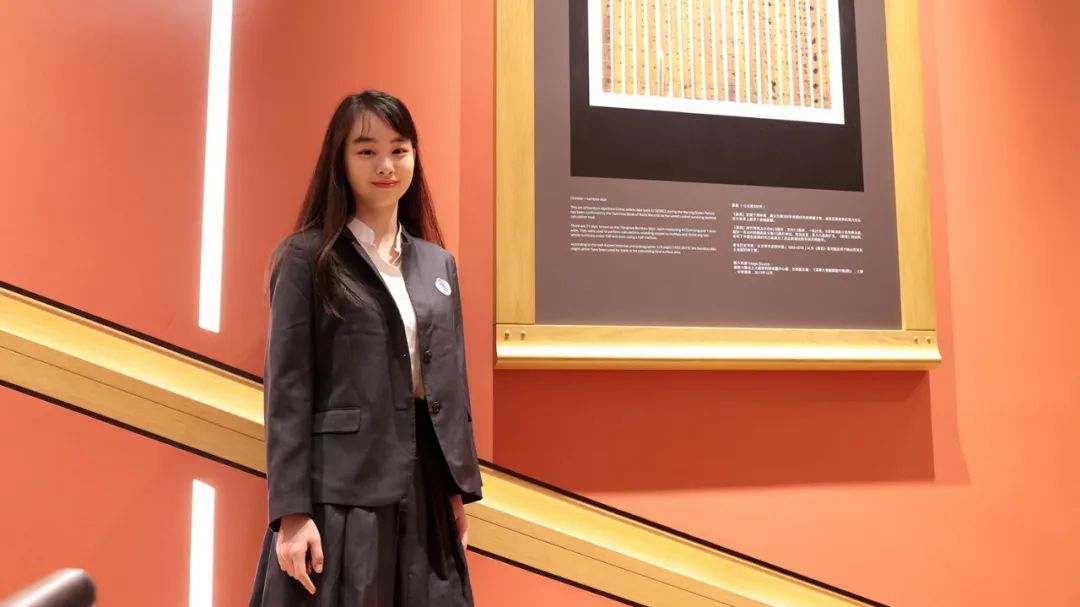 The studio lights were ready, and the cameras were about to roll. Missy Liu set aside the script and looked straight at the teleprompter. She was to read part of a six-minute news update about the sessions at the United Nations Climate Change Conference 2021, or COP26, to be broadcast live in Keystone classrooms during the morning break. Missy was one of the hosts on Day 2 of the broadcast. Despite only reading a short piece, she still prepared for it for weeks. She and the production team often headed to the multimedia broadcasting room after school to test equipment, practice producing content, and learn other broadcast processes from their Student Media Services (SMS) adviser and Innovation Coach Eric Johnston. And as one of the SMS leaders, she planned with other key members the group’s pre-production, broadcast, and post-event coverage of the conference. During this entire period, Missy went back to her dormitory before 10 PM. Despite that, she never ran out of energy.
The studio lights were ready, and the cameras were about to roll. Missy Liu set aside the script and looked straight at the teleprompter. She was to read part of a six-minute news update about the sessions at the United Nations Climate Change Conference 2021, or COP26, to be broadcast live in Keystone classrooms during the morning break. Missy was one of the hosts on Day 2 of the broadcast. Despite only reading a short piece, she still prepared for it for weeks. She and the production team often headed to the multimedia broadcasting room after school to test equipment, practice producing content, and learn other broadcast processes from their Student Media Services (SMS) adviser and Innovation Coach Eric Johnston. And as one of the SMS leaders, she planned with other key members the group’s pre-production, broadcast, and post-event coverage of the conference. During this entire period, Missy went back to her dormitory before 10 PM. Despite that, she never ran out of energy.
“In our Keystone classes, we often talk about environmental issues and climate change. Sharing the COP26 conference with the community through live broadcast was a learning opportunity for all,” Missy shares, adding that the entire activity was a significant attempt to involve the campus community in climate action.
Missy dreams of becoming a journalist in the future, so she can stand up for everyone who hopes for an ideal world. This growing interest began about two years ago when she stepped into the realm of philosophy and epistemology as a result of the discussions and activities in her tenth-grade Theory of Knowledge (TOK) course. She often wondered about how knowledge informs people and their actions and part in society. And for her, journalists have a crucial role in this: they spotlight social issues and give voice to the unheard and neglected. She hopes to enter this profession to spark extensive discussions that inspire people to participate in social change.
In 2021, Missy joined the Pioneer Research program for the third time. In her latest participation, she was mentored by Professor Yitzhak Melamed, Ph.D., from the Johns Hopkins University Department of Psychology. Together with him and a small student group, Missy read Descartes’ Meditations on First Philosophy and combined her learning to write a paper that examined the French philosopher’s conception of whether the acquisition of knowledge affects humans’ free will. She further asked:
The possession of knowledge does not undermine free will. However, with this freedom comes moral responsibility. How do we assert our free will in the judgment given to us by our creator? Should we squander it by blindly embracing brainwashing ideologies? Or can we actively seek new perspectives to become truly open-minded? These are important questions to ask ourselves as we continue in our epistemological pursuits.
The research earned Missy a high evaluation from Professor Melamed, who remarked that her paper was “of the quality of the very best undergraduate students in their junior or senior year at Hopkins”. In addition, he considered her “a true gem” whose “talent is just limitless” (emphasis from the professor) and that he would “envy her teachers in the school she’s going to attend”.
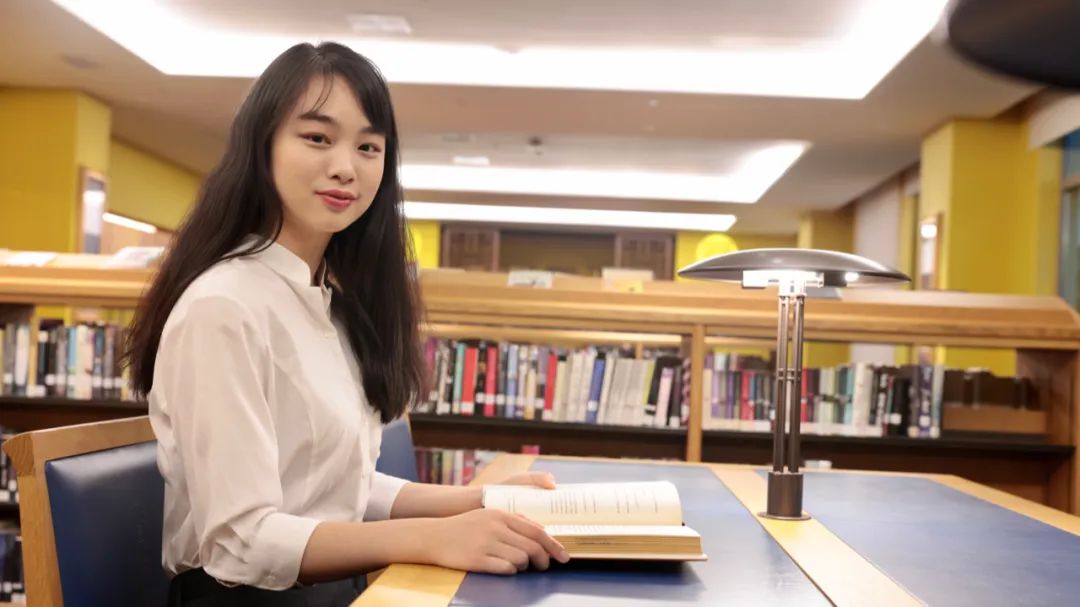
Since finishing the program, Missy has continued her exploration of epistemology and taken on activities to share her knowledge with the campus community. This year, while in Grade 12, she launched a club where she discusses history, politics, and philosophy with students from different grades. So far, they have talked about Marxism and dystopia, analyzed Rousseau’s works, and exchange views about their understanding of freedom. Not only do members expand their boundaries, but they also explore the significance of these topics and see their practical applications in real-world issues. Before this, Missy founded and co-led a group called “Operation Smile”, inspired by a study where she found that girls with cleft lip and palate who live in remote mountain villages in China were less likely to receive medical treatment than boys. With the belief that “everyone deserves a great smile”, Missy and her friends organized fundraiser activities for people with cleft lip and palate, especially girls.
Missy aims to study comparative literature in university, although her Diploma Programme courses are pretty idiosyncratic. She currently takes higher level mathematics, history, and business management for a reason: she wants to challenge herself and expand the breadth of her knowledge.
“I will continue paying attention to these subjects because they are present in the many aspects of our lives, whether as an artifact of human imagination or a testimonial to cross-cultural communication,” she says. “What could be more meaningful than studying these topics closely related to our lives?”
In a Class of Its Own: For Ada Li, labels don’t mean anything
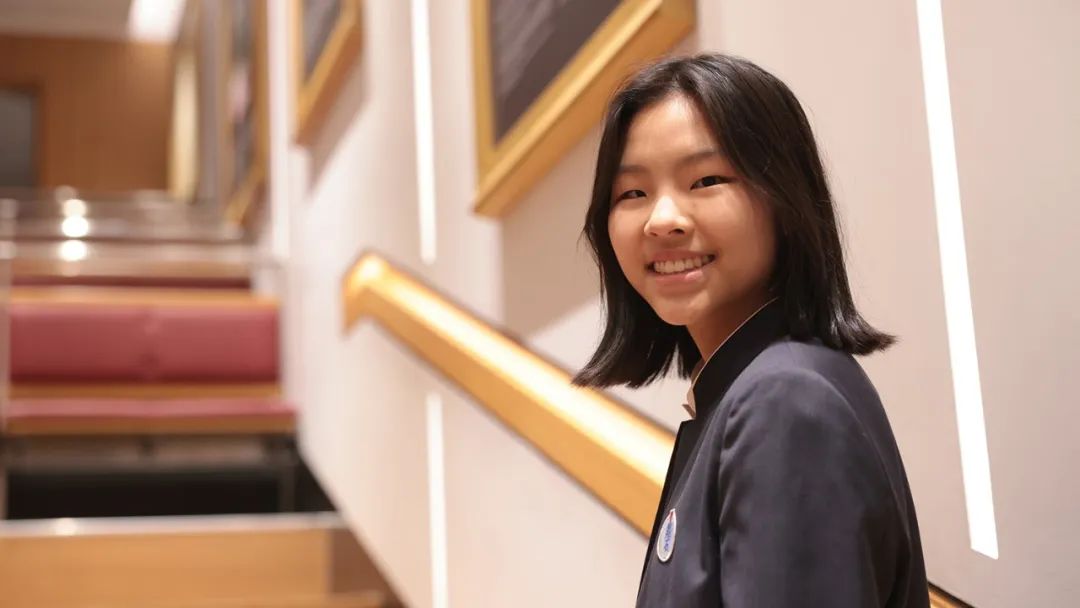 Ada Li was supposed to be in the United Kingdom in November 2021 to attend the John Locke Institute Essay Competition awarding ceremony at the University of Oxford. She was among the students who were given a high commendations rating in the History category by a jury of professors from top universities. Ada may have missed the occasion due to pandemic restrictions but being recognized in a global competition gave her the confidence that she could write profoundly in her second language. She entered Keystone in the sixth grade with an acceptable level of English proficiency; since then, she has plowed through the language barrier, and her John Locke essay was just one solid proof of her growing mastery.
Ada Li was supposed to be in the United Kingdom in November 2021 to attend the John Locke Institute Essay Competition awarding ceremony at the University of Oxford. She was among the students who were given a high commendations rating in the History category by a jury of professors from top universities. Ada may have missed the occasion due to pandemic restrictions but being recognized in a global competition gave her the confidence that she could write profoundly in her second language. She entered Keystone in the sixth grade with an acceptable level of English proficiency; since then, she has plowed through the language barrier, and her John Locke essay was just one solid proof of her growing mastery.
Behind this progress are the seemingly minor classroom moments that have strengthened Ada’s enthusiasm for improving herself. She remembers a middle school English class activity that prompted them to create posters to visualize idiomatic expressions. To make the already interesting topic more relevant, she produced 18 pun posters responding to social issues. She also recalls answering a math test where she encountered a question about an arithmetic sequence. Analyzing it for several minutes put Ada into a trance. And when she came back to her senses, she realized the question’s connection to finding patterns in life before arriving at a different yet satisfying conclusion: “This is why mathematics is beautiful!” Of course, she also found the correct answer to that math problem.
It was in these moments that Ada realized the power of a positive mental state and the impact of positive labeling, or the theory in psychology that posits an individual and their behavior are affected by the terms or definitions used to classify them.
“I am still exploring so many things about myself,” Ada says. “I don’t want to make assumptions like ‘I am not good at math’. Because of that, I don’t feel afraid of the difficulties in front of me, and that’s why I can discover the beauty of mathematics and many other things. So, in short, we shouldn’t restrict ourselves, because people commonly fail to notice when they are setting boundaries for themselves. And keep yourself away from negative self-talk. Having constructive thoughts will bring you more positivity in life.”
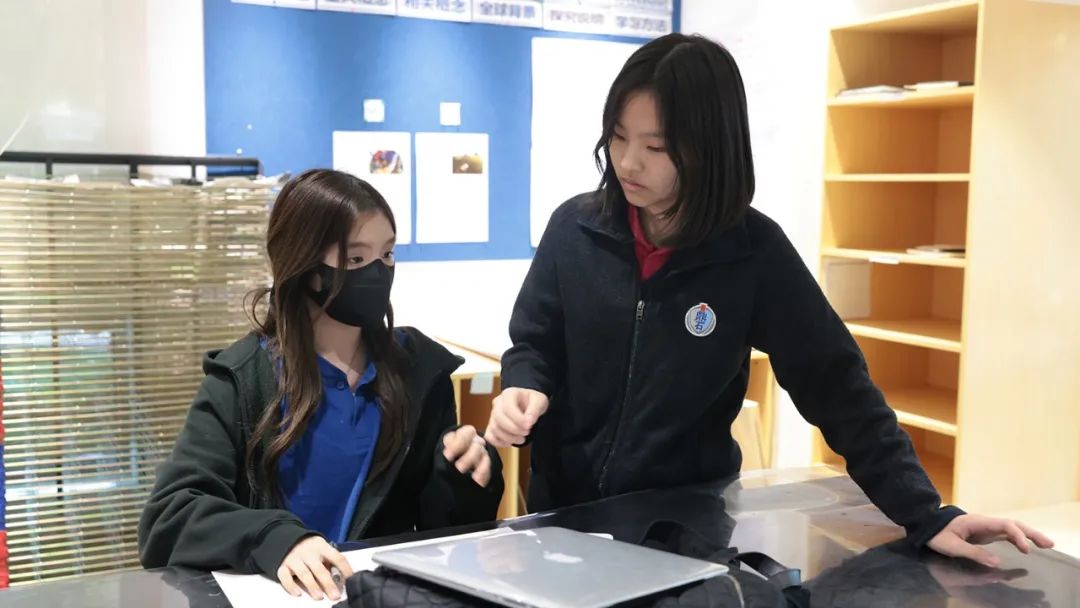
Ada encountered the labeling theory randomly while browsing the Internet. In Grade 9, she joined the Keystone Psychology Club that introduced her to topics in psychology that would have only been discussed in university. She was offered club leadership the following semester as its founder left to focus on her senior year. Despite not knowing much about the subject then, Ada accepted the role because of her growing curiosity. During the summer vacation that year, she and her co-leader Lucy Qiao learned topics on their own to design syllabi and interactive activities for club members. In addition, they launched a member-exclusive WeChat group that later evolved to include more than 100 students interested in psychology. The group, now called “Atrium Library”, has remained active, with members sharing articles, videos, documentaries, and other materials.
Ada’s continuing pursuit of psychology has formed a foundation for her recent academic work. She focused her Personal Project product on the concepts and principles behind memory, organizing research papers and books she found into a compendium of resources to help students improve memory. In her CAS project, Ada developed an educational project on media literacy so students could understand the challenges of misinformation and disinformation, critically assess advertising practices, and get through the noise in the media. In addition, she also collaborated with some classmates to produce The Celadon Doll, a 24-minute documentary about the craftspeople creating celadon pottery and the conservation efforts for this intangible cultural heritage. The Celadon Doll won a certificate of excellence for qualifying in the Video - Superior Award category at the 2020-2021 National High School Media and Communication Competition and Annual Media Review.
Despite being active academically, Ada manages to keep a low profile. In a ninth-grade essay, she wrote about the alto clef, a symbol that covers the middle register on a musical staff and is used for instruments in the “inner voice” (or accompaniment and less likely to be heard) section in orchestral music. While Ada believes she may not stand out like the sweetest sounding soprano or most resonant bass, her voice still gives texture, color, and harmony to make the music more complete.
“Our uniqueness makes everyone common, but it’s important that we live our lives actively, instead of just passively following others’ ways because they seem safe,” Ada shares. “Don’t let the loudest voices bother you; without the alto clef, the sound will be bland and incomplete. I believe there are no peaks in life, and the notes that give music to it are never-ending. And so, we should enjoy the most ordinary moments in life so we can feel the extraordinary joy of living.”
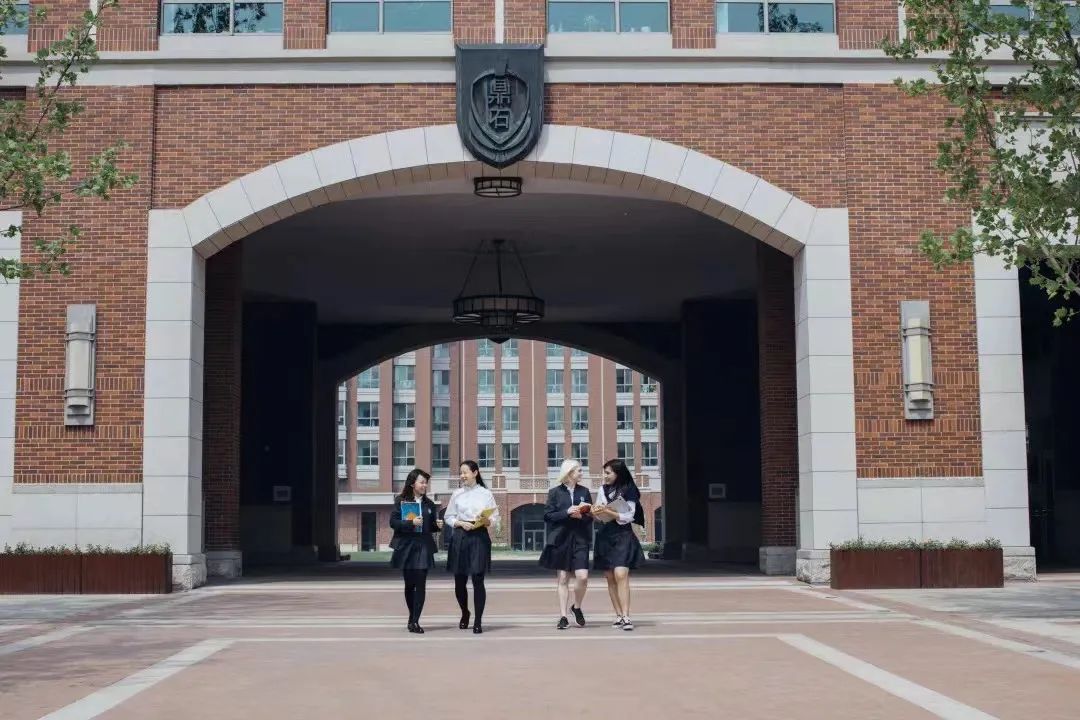
About the Keystone Scholars Program: As our most competitive and distinguished scholarship, the Keystone Scholars program represents the highest level of scholarship, leadership, and service. Keystone Scholars are girls and boys who have demonstrated outstanding talents and achievement in both academic and extracurricular realms, and who reflect the five Keystone shared values of compassion, justice, respect, wisdom, and honesty. Like the Junzi Scholars, Keystone Scholars have the ability to raise the level of intellectual discourse in their classes, and to make distinguished contributions to activities in the community. While they excel in the classroom, they may also be outstanding musicians, artists, athletes or community leaders. Strong verbal and written skills in English are essential.
In addition to the regular application requirements, candidates must submit a scholarship essay; an additional teacher recommendation; a personal recommendation from an extracurricular activity; evidence of outstanding work or performance in this activity; and a recent TOEFL score. Students who make it to the finalist stage will be required to do an additional interview with the selection committee.
Eligibility: Students applying to Grades 10-12.
Awards: Keystone scholarships are merit-based awards. The scholarship will cover the full cost of Keystone boarding tuition for each year through to graduation, provided the student maintains a distinguished level of academic performance and is a positive, contributing member of the school community. In addition, if the student enrolls at an Academy approved college or university, Keystone scholars will receive a grant to cover one year of college tuition.
For more details, scan the QR code in the picture to visit the Admissions and Scholarship Application pages on the official Keystone Academy website.



